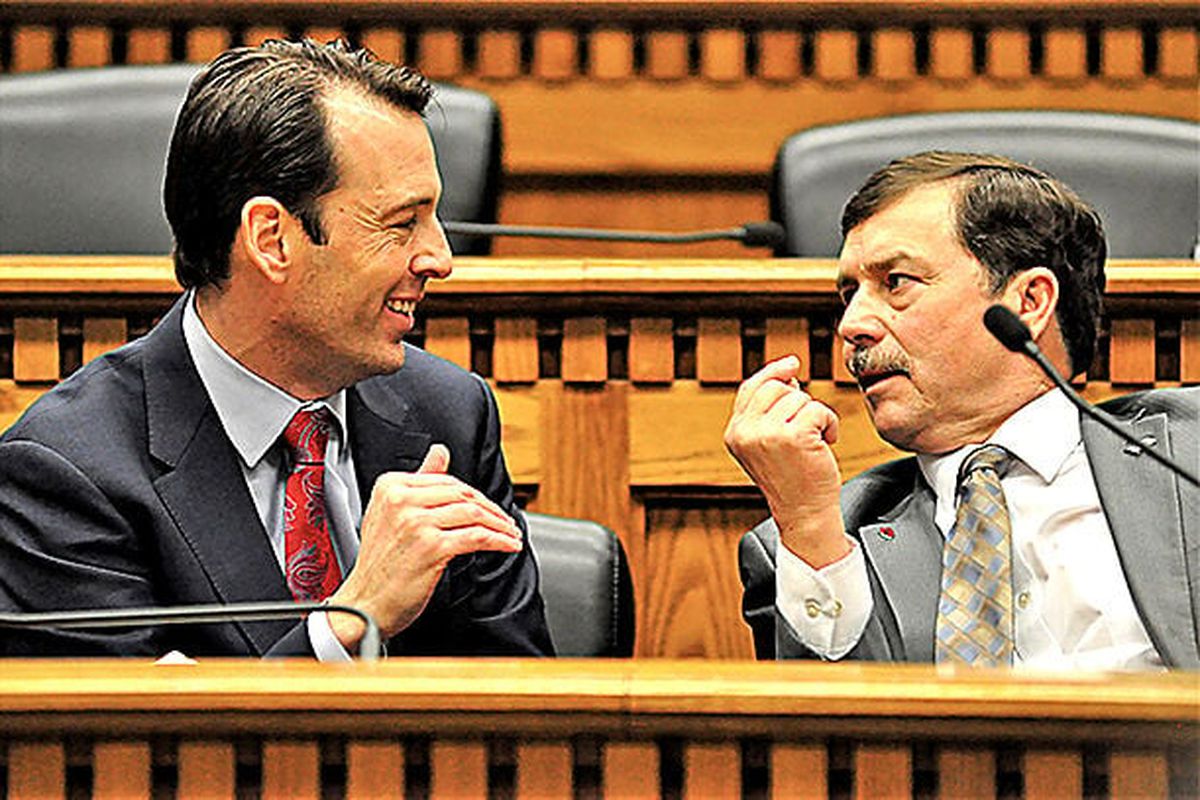Bipartisanship rises in Washington Legislature

Washington state lawmakers are keen on working together, new data finds, as the majority of bills passed during this year’s legislative session received bipartisan support.
During the short 60-day session, lawmakers sent 381 bills to the governor’s desk with nearly 96%, or 365 bills, receiving at least one “yes” vote from both parties, according to recent legislative data.
“No one has the market cornered on good ideas, so it only makes sense to try and work with the broadest coalition to pass a bill,” said Senate Majority Leader Andy Billig, D-Spokane.
Democratic lawmakers hold the majority in each chamber, with 58 Democratic lawmakers in the House compared to 40 Republicans . In the Senate, there are 29 Democrats and 20 Republicans.
Lt. Gov. Denny Heck, a Democrat, credits a large amount of the bipartisan work to the Senate leadership creating a culture of collaboration, pointing out Billig and Minority Leader Sen. John Braun, R-Centralia.
He also said Majority Floor Leader Sen. Jamie Pederson, D-Seattle, and Minority Floor Leader Sen. Shelly Short, R-Addy, are in constant communication.
“They have a no-surprises rule, and from where I sit or stand, they both lean in very hard to treat one another with respect, even when they’ve got strong disagreements,” Heck said.
Lawmakers collaborate throughout the legislative session, even during floor votes.
“If you watch the Senate floor you’ll see the bipartisan activity actually happening in real time with senators going over to another senator’s desk and showing an amendment, ‘Hey, is this something you think you could support, or would you be more likely to support this bill if this amendment were to hang?” Billig said.
The new report details how both parties from the House and Senate voted on each piece of legislation. Here are some key findings:
- 91.3%, or 348 bills, garnered approval from at least 10% of the Republican body
- 81.8%, or 308 bills, secured support from over half of the Republican lawmakers
- 52.2%, or 199 bills, unanimously passed both chambers
- 4.2%, or 16 bills, passed only had Democratic support
Rep. Leonard Christian, R-Spokane Valley, said in such a short session Democrats know they have limited time to bring up controversial bills. But if they do, Republicans will often propose amendments that take time away from other polices as their parties try to get on the same page.
Party line votes are “definitely the exception, not the rule,” Billig said.
However, Billig said Democrats pursued some legislation without Republican support because they wanted to ensure they’re not leaving behind bills supported by many Washingtonians, especially in areas like reproductive health, climate action and gun violence prevention.
Sen. Mark Schoesler, R-Ritzville, said the Senate tends to work in more bipartisan ways compared to the House on these bills, but the party line votes “tell the real story” of what happens during the session.
“The majority obviously had an agenda, and they didn’t care if it was bipartisan or not, and in some cases, didn’t even care if they lost some of their members’ (votes),” he said.
The bills that passed this year with only Democratic support include toughening business restrictions for firearms dealers, speeding up Puget Sound Energy’s transition away from natural gas and linking Washington’s carbon market with Quebec and California.
“Some friction between parties as a bill progresses is healthy and is actually how the system is designed,” Billig said. “That friction can bring out new ideas, it can bring more extreme ideas to the middle and it can help to raise questions that ultimately make the legislation better in the end.”
Heck echoed this and said that without disagreements, “then nobody is pointing out the better alternative (and) nobody is pointing out the flaws.”
It can be easy to view the Legislature as “partisan gridlock,” Billig said, because Congress emulates that notion, and controversial bills tend to attract the public’s attention. However, he noted that lawmakers also pass many smaller bills fixing language or aligning state and federal laws that receive unanimous support. Those bills don’t accumulate much public attention.
“I think most of us carry around in our heads the kind of painful image of partisan shifts that we derive from how Congress functions,” Heck said. “And that’s just simply not the case of the Washington state Senate.”
The Legislature also has shown a trend of increasing bipartisan support for bills in recent years. In 2023, 95.9% of bills received bipartisan backing, compared to 94.5% in 2022 and 92.8% in 2021.